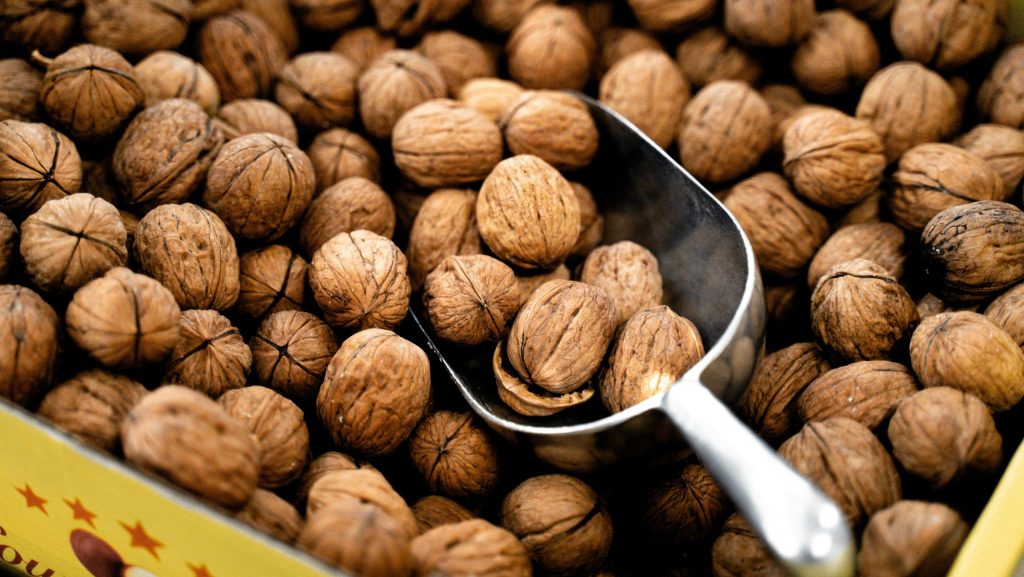Table of Contents
This article focuses on the scientific principles behind protein’s role in muscle growth, aiming to provide an informative guide on how beginners can optimize their protein intake for better results in muscle building.
This guide will cover several essential topics:
- Protein Basics for Muscle Gain: Understanding how protein supports muscle synthesis and growth.
- Optimal Protein Sources for Fitness: Identifying the best dietary sources of protein, including whole foods and supplements.
- Timing Your Protein Intake: Guidelines on when and how much protein to consume for maximum muscle growth.
- Protein and Workout Routine Synergy: Strategies for aligning protein intake with exercise plans.
- Avoiding Common Protein Mistakes: Tips for avoiding common errors in protein consumption and ensuring a balanced approach to nutrition.
Protein is fundamental to muscle repair and growth, acting as the building block for muscle tissue. For fitness beginners, it’s essential to understand not only the amount of protein required but also the importance of the quality and timing of protein intake. Scientific research suggests that both animal and plant-based proteins can contribute significantly to muscle growth, provided they are consumed as part of a balanced diet that meets individual nutritional needs.
Optimal protein sources vary, including meats, dairy, legumes, and supplements such as whey or plant-based protein powders. These sources can help meet the daily protein requirements necessary for muscle synthesis, especially when consumed in conjunction with a regular workout routine. The timing of protein intake, particularly around workouts, is crucial for maximizing muscle repair and growth. Strategies include consuming protein before and after workouts and spreading protein intake evenly throughout the day to support continuous muscle synthesis.
“Did you know that protein intake is not just about quantity but also about timing and quality? Learn how to optimize protein consumption for muscle building.”
Moreover, integrating protein consumption with a workout routine enhances the effectiveness of both dietary and exercise plans. Proper nutrition, including adequate protein intake, plays a significant role in recovery and in reducing muscle soreness after exercise. However, it’s important to avoid common mistakes, such as excessive protein intake or relying solely on supplements, which can detract from achieving a balanced diet and optimal fitness results.
Understanding the role of protein in muscle building and implementing strategies for optimal consumption are key for fitness beginners aiming to improve their muscle growth outcomes. This article serves as a comprehensive guide to making informed choices about protein intake and integrating these choices effectively with exercise routines.

Protein Basics for Muscle Gain
It serves as the fundamental building block of muscle tissue, vital for muscle synthesis, repair, and growth. This section will elucidate protein’s role in muscle development, outline recommended intake for maximal results, and detail the diverse types of protein that support fitness goals.
Protein and Muscle Synthesis:
Muscle synthesis is the biological process where the body repairs and rebuilds muscle fibers, crucial for muscle growth following exercise. Protein, comprised of amino acids, plays a pivotal role in this process. Consuming protein leads to the breakdown of its amino acids, which the body then uses to repair and build muscle tissue. The effectiveness of muscle synthesis depends on the exercise intensity and the quantity and quality of consumed protein. A diverse intake of protein sources ensures a comprehensive amino acid profile, essential for maximizing muscle synthesis.
“Consuming a diet rich in essential amino acids can increase muscle protein synthesis by up to 50% following exercise.”
Daily Protein Requirements:
The required protein amount varies based on individual body weight, the intensity of physical activity, and muscle growth goals. General guidelines recommend consuming between 1.2 to 2.0 grams of protein per kilogram of body weight daily for individuals engaging in regular physical activity. This intake supports optimal muscle repair and growth. It’s advisable to distribute protein intake evenly across meals throughout the day to sustain the muscle synthesis process continuously. Personal protein needs can be fine-tuned by adjusting intake based on activity levels and monitoring the body’s response, to optimize muscle-building efforts.
| Activity Level | Protein Intake (grams/kg body weight/day) |
|---|---|
| Moderate Exercise | 1.2 – 1.4 |
| Intense Exercise | 1.6 – 1.8 |
| Professional Athlete | Up to 2.0 |
Types of Protein:
Different protein sources can affect muscle growth. Animal proteins, such as meat, dairy, and eggs, are regarded as complete proteins, containing all essential amino acids necessary for muscle synthesis. On the other hand, plant-based proteins, found in legumes, grains, and nuts, may need to be combined to ensure a complete amino acid profile for supporting muscle growth. Protein supplements, including whey, casein, or plant-based powders, offer a convenient method to meet protein requirements, particularly useful around workout times. Selecting the appropriate protein type involves considering dietary preferences, nutritional needs, and lifestyle factors.
Understanding the role of protein in muscle development is key to achieving muscle-building goals. Recognizing how protein supports muscle synthesis, determining daily protein needs, and choosing suitable protein types form the foundation for effective fitness nutrition strategies. This knowledge enables informed decisions about protein consumption, facilitating optimized muscle growth and improved fitness outcomes.

Optimal Protein Sources for Fitness
This section focuses on the best sources of protein for fitness enthusiasts, ranging from nutrient-rich whole foods to specially formulated supplements, and also addresses considerations for those following plant-based diets.
Whole Food Protein
Whole foods are a primary source of protein, crucial for muscle repair and growth. Foods such as chicken, beef, fish, eggs, and dairy not only offer high protein content but also provide a complete amino acid profile necessary for muscle synthesis. Incorporating a variety of these protein-rich foods into one’s diet is key to building muscle. It’s also advisable to choose lean meats and organic or grass-fed options where possible, to maximize health benefits.
For those following a plant-based diet, sources like lentils, beans, quinoa, and tofu are invaluable. Although some plant-based proteins may not individually offer a complete amino acid profile, combining different sources can ensure all essential amino acids are consumed.
- Chicken breast: Lean and high in protein
- Salmon: Rich in omega-3 fatty acids and protein
- Eggs: Contains leucine, an essential amino acid for muscle synthesis
- Greek yogurt: Offers a high protein-to-calorie ratio
- Lentils: A plant-based protein powerhouse
Protein Supplements
Protein supplements are a convenient way for fitness enthusiasts to meet their daily protein requirements. Whey protein, a by-product of cheese making, is renowned for its high biological value and rapid absorption rate, making it an ideal choice for post-workout recovery.
Casein protein, which digests more slowly, provides a prolonged release of amino acids, making it suitable for consumption before sleep to aid muscle recovery overnight.
Plant-based protein powders, such as those derived from pea, hemp, and rice, offer valuable alternatives for vegetarians, vegans, or individuals with dairy allergies, enabling them to meet their protein requirements effectively.
Vegetarian and Vegan Options
Maintaining a vegetarian or vegan diet does not mean compromising on muscle growth. A well-planned plant-based diet can fulfill all nutritional needs, including protein. High-quality protein sources for vegetarians and vegans include tempeh, edamame, seitan, and spirulina. Furthermore, the market offers a wide range of plant-based protein powders, providing a convenient supplement option.
“Whey protein contains all nine essential amino acids necessary for muscle repair, making it one of the most complete protein sources available.”
It’s crucial to incorporate a variety of protein sources to ensure a comprehensive amino acid profile for optimal muscle synthesis and growth. Attention should also be paid to other nutrients essential for muscle health, such as iron, vitamin B12, and omega-3 fatty acids, which might be less abundant in plant-based diets.
Understanding and integrating various protein sources into your fitness diet is vital for muscle building. Whether through whole foods, supplements, or plant-based options, ensuring adequate and quality protein intake is paramount for achieving fitness goals. Variety and balance in your diet are essential for supporting optimal muscle growth and overall health.

Timing Your Protein Intake
This section delves into the importance of aligning protein consumption with workout routines and throughout the day, to enhance muscle synthesis and recovery, and highlights the benefits of nighttime protein consumption.
Pre- and Post-Workout Nutrition
Protein timing around exercise is essential for muscle recovery and growth. Consuming protein before workouts ensures amino acids are available for muscle tissue, minimizing damage and preparing the body for muscle exertion. Whey protein is recommended due to its fast absorption.
Following a workout, the body is primed to repair and regrow protein and glycogen stores. Consuming protein immediately after exercise replenishes these stores, aiding in muscle repair and growth. This period, known as the “anabolic window,” is crucial for recovery and maximizes the muscle-building process.
| Timing | Protein Intake Recommendation |
|---|---|
| Pre-Workout (1-2 hours before) | 20-25 grams of high-quality protein |
| Post-Workout (within 45 minutes) | 20-30 grams of high-quality protein |
Protein Distribution Throughout the Day
Distributing protein intake evenly across meals sustains muscle synthesis and supports recovery and growth. This approach ensures a steady supply of amino acids to the muscles, crucial for maintaining muscle mass and promoting health. Regular protein consumption across meals is recommended for optimal muscle protein synthesis, highlighting the importance of a balanced dietary schedule.
Nighttime Protein
Consuming slow-digesting proteins like casein before sleep can significantly benefit muscle repair and growth. Casein provides a sustained release of amino acids overnight, supporting muscle recovery and synthesis during sleep.
“Studies have shown that consuming 30-40 grams of casein protein before bed can increase overnight muscle protein synthesis rates by over 20%.”
This practice is particularly beneficial for individuals undergoing resistance training or aiming to increase muscle mass, ensuring muscles receive the necessary amino acids for recovery and growth throughout the nigh
Timing protein intake effectively plays a pivotal role in optimizing muscle growth and recovery. Focusing on pre- and post-workout nutrition, ensuring even distribution of protein throughout the day, and incorporating nighttime protein consumption are strategies that can significantly enhance the benefits of a fitness routine. Adopting these practices ensures continuous support for muscle synthesis and recovery, leading to improved fitness outcomes.

Protein and Workout Routine Synergy
This section emphasizes the strategic alignment of protein consumption with various types of exercise, underscoring the importance of supplement timing and nutritional strategies for optimizing muscle synthesis and recovery.
Integrating Protein with Workout Plans
Aligning protein consumption with exercise routines is critical for muscle repair and growth. The type of workout—be it strength training or endurance exercises—determines the specific protein needs to maximize recovery and muscle building. Strength training, for instance, significantly benefits from increased protein intake, particularly from sources high in essential amino acids like leucine, which are known to stimulate muscle protein synthesis effectively.
Nutritional strategies for workout routines should consider the timing of protein consumption. Consuming protein-rich foods or supplements 1-2 hours before engaging in exercise can prime the muscles for performance, reducing the extent of muscle protein breakdown during workouts. Post-exercise, it’s vital to consume protein to initiate the recovery process, promoting muscle repair and facilitating growth.
Recovery and Protein
The significance of protein in muscle recovery post-exercise is paramount. The period following a workout sees an increased rate of muscle protein turnover, where muscle protein synthesis is elevated in response to training stimuli. Adequate protein intake post-workout replenishes amino acids necessary for muscle repair and growth, supporting quick recovery and minimizing soreness.
“Consuming 20-25 grams of protein after resistance training can increase muscle protein synthesis by over 50% compared to not consuming protein.”
Quality of protein is crucial during the recovery phase. Complete proteins, which contain all essential amino acids, are preferable for their role in effectively supporting muscle repair and growth. Various dietary sources, such as whey, casein, and soy proteins, provide different digestion rates and amino acid profiles, allowing for recovery nutrition customization based on individual needs and exercise intensity.
Supplement Timing and Workouts
Timing the intake of protein supplements relative to workout schedules is pivotal for achieving the best muscle building and recovery outcomes. Protein supplements consumed in proximity to workout sessions, particularly immediately post-workout, play a significant role in muscle recovery by supplying the muscles with the building blocks needed for repair.
- Strength training days: - Consume 20-30 grams of whey protein immediately post-workout for rapid absorption. - Endurance training days: - 10-20 grams of a protein-carbohydrate mix can aid in recovery and glycogen replenishment. - Rest days: - Maintain consistent protein intake through meals to support muscle repair and growth.
The “anabolic window,” a period post-exercise when the body is highly receptive to nutrients for recovery and growth, emphasizes the importance of timely protein supplementation. Utilizing this window by consuming protein within 30 to 60 minutes after exercises can significantly enhance muscle recovery and growth. Current research suggests flexibility in this timing, still offering substantial benefits when protein is consumed within this timeframe.
Creating synergy between protein intake and exercise routines significantly impacts muscle growth and recovery. By strategically timing protein consumption in relation to workouts and understanding the importance of post-workout recovery nutrition, individuals can ensure their muscles receive the nutrients needed to rebuild stronger. Tailoring protein intake to specific workout demands and optimizing the timing of supplements are key strategies for anyone aiming to maximize their fitness results, leading to more effective training sessions, faster recovery, and substantial muscle gains.

Avoiding Common Protein Mistakes
This section will guide you through avoiding these mistakes, with a focus on not exceeding protein needs, maintaining a balanced diet, and understanding the role of supplements.
Excessive Protein Intake
Although protein is essential for muscle repair and growth, more is not always better. Exceeding daily protein intake recommendations can strain the kidneys and lead to dehydration, without offering additional benefits for muscle growth.
“The human body can process up to 25-30 grams of protein in one sitting, with excess amounts not directly contributing to muscle growth.”
It’s vital to adhere to recommended protein intake levels, generally 1.2 to 2.0 grams per kilogram of body weight per day, depending on your activity level and fitness goals. This approach ensures effective muscle building without the health risks associated with excessive protein consumption.
Neglecting Other Nutrients
Focusing exclusively on protein can lead to neglecting other essential nutrients, undermining your fitness efforts and overall health. A balanced diet is key to supporting muscle growth, recovery, and maintaining energy levels.
- Carbohydrates: Essential for energy and recovery. - Fats: Necessary for hormone production, including testosterone, which aids in muscle growth. - Vitamins and Minerals: Support various bodily functions, including muscle recovery and immune system health.
Ensuring a diverse intake of foods will provide a balanced mix of nutrients, supporting not only muscle growth but also overall physical and mental well-being.
Misconceptions About Protein Supplements
Protein supplements are often viewed as a straightforward path to muscle gain. However, they should complement, not replace, whole food sources in your diet. While convenient, supplements are not superior to natural food sources of protein.
Understanding that supplements are an adjunct to a balanced diet can help avoid reliance on them at the expense of other nutritional needs. A well-rounded diet, supplemented with protein powders when necessary, provides the best foundation for muscle growth and health.
Navigating protein consumption wisely is fundamental to achieving fitness and health goals. By managing protein intake, ensuring dietary balance, and correctly using supplements, you can avoid common mistakes and foster sustainable muscle growth. Embracing a holistic approach to nutrition, informed by accurate guidelines and debunked myths, leads to optimal health and fitness outcomes.
Conclusion: Muscle Building: Protein Dynamics for Starters
This guide has delved into the nuances of protein consumption, from the foundational aspects of protein synthesis to the advanced strategies of integrating protein intake with workout routines.
Key insights include:
- The critical role of protein in muscle synthesis, emphasizing the need for daily protein requirements tailored to individual fitness goals.
- The importance of choosing optimal protein sources, including whole foods and supplements, to support a diverse and balanced diet.
- The significance of timing your protein intake around workouts to maximize muscle recovery and growth, highlighting effective pre- and post-exercise nutrition strategies.
- How integrating protein with workout plans enhances dietary and exercise regimen effectiveness, underscoring the importance of recovery nutrition and supplement timing.
- Strategies for avoiding common protein mistakes, such as excessive intake and neglecting other nutrients, alongside debunking myths surrounding protein supplements.
The relationship between protein intake and fitness is multifaceted, requiring careful consideration and planning. By adhering to established guidelines for protein consumption, ensuring a balanced diet, and strategically timing protein intake in relation to exercise, individuals can significantly enhance their muscle building, recovery, and overall fitness outcomes. This comprehensive guide provides the foundational knowledge and actionable strategies needed to optimize nutrition for fitness, encouraging readers to implement these practices for improved health and performance.
“Implement these strategic protein and nutrition practices today to enhance your muscle building and recovery. A well-informed approach to dietary planning is the cornerstone of achieving and maintaining your fitness goals.”
Understanding and applying the principles discussed throughout this guide will not only support your muscle growth and recovery but also contribute to a sustainable and health-focused approach to fitness nutrition. As you continue on your fitness journey, remember the importance of a balanced, informed approach to protein intake and the broader spectrum of nutritional planning.
Citations:
- Kim, I. Y., Park, S., Jang, J., & Wolfe, R. R. (2020). Understanding muscle protein dynamics: Technical considerations for advancing sarcopenia research. Annals of Geriatric Medicine and Research, 24(3), 157–165. doi: 10.4235/agmr.20.0041
- Atherton, P. J., & Smith, K. (2012). Muscle protein synthesis in response to nutrition and exercise. Journal of Physiology, 590(Pt 5), 1049–1057. doi: 10.1113/jphysiol.2011.225003